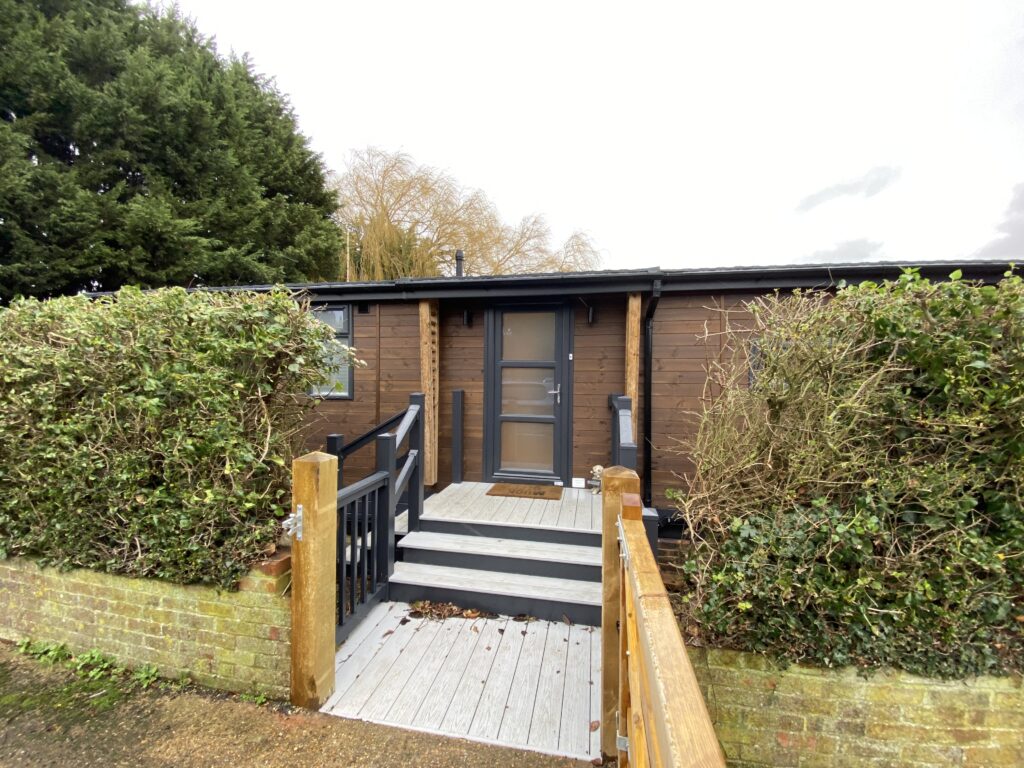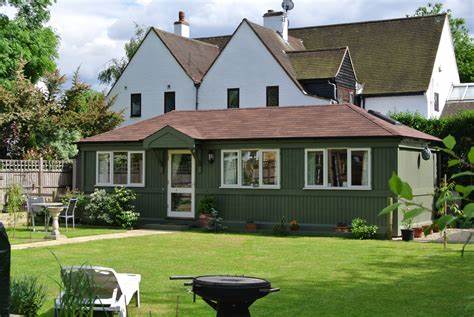Thinking through your care options
The most important decision to make when considering your care needs is whether you can stay in your own home or need to move into a care home.
The decision will be based on what you want and what care you need. But you’ll also need to consider how much it will cost.
Our needs change as we get older, and aspects of living independently become more difficult. For example, getting up and down stairs or in and out of the bath.
The sooner you consider what will work, the better. This can help avoid rushing into a choice that’s not right for you – particularly in a time of crisis, such as following a stay in hospital.
Here are some useful questions to help you prioritise your needs. Writing it down can be helpful:
What does ‘home’ mean to you? For example, is it comfort, security, familiarity?
What makes a good home in later life? For example, proximity to family or your GP.
What things might become more difficult? For example, getting into and out of the bath, steep stairs or a large garden.
Comparing the cost of care
Costs can vary around the country. But your local social services department (or Health and Social Care Trust in Northern Ireland) will be able to give you an idea of how much you’ll need to pay for services you arrange through them.
Charities and disability groups are a good source of information too, but if you’re thinking of using a private home care agency or care home, you might need to make your own enquiries.
Home care costs
Costs are very different depending whether you need support during the day or at night, on weekdays or at weekends.
It’s tricky to work out what you’ll pay in advance but contacting some local providers can help you get more realistic costs.
We’ve provided a few estimates to get you started.
£15,000 a year, for 14 hours of care a week. Based on the UK Homecare Association’s estimate of what councils should pay, as a minimum it’s £20.69 an hour. If you’re self-funding, you might pay more.
If you need full-time care during the day, costs could be more than double the above.
If you need carers to move in around the clock and you have complex needs, it could cost about £83,200 a year. In those circumstances, residential care is usually more cost-effective. If you don’t have complex needs, fees should be less – about £41,000-£65,000 a year.
You’ll still have the cost of maintaining your house, but you have the advantage of being in familiar surroundings.
If you and your partner both need care, home care might be more cost-effective. Some home care providers only charge a supplement to cover the second person, rather than doubling the cost of care for one person.
If you live in England, you can get an estimate of home care costs in your area by using the Cost of care calculator on the Which? website
Care home costs
According to Laing & Buisson care for Older People UK Market Report 2020, the average annual UK care home fees in 2019-20 were:
Residential (Frail older) -£34,686
Residential (Dementia) – £35,464
Nursing (Frail older) – £48,048
Nursing (Dementia) – £49,712
Remember, you might have to pay extra for things like trips out, hairdressing and some therapies – check what’s included in the care home fees. The cost will be affected by the location, quality and service offered, too.
Get in touch with us at Landscape Living about bringing your loved ones closer :
08002461252
Source Financial Times
Ten things I wish I’d known before choosing a care home
A place in a residential care home can cost in excess of £50,000 a year
Four years ago I became a fully paid up member of the Sandwich Generation, thanks to the existence of teenage children and a mother-in-law suffering from dementia. Every spare moment was taken up looking after one or the other. If I wasn’t researching local secondary schools and reading up on the GCSE curriculum, I was studying care homes and Alzheimer’s.
Dementia is a scourge, a thief that steals memory, the ability to process thoughts and to live independently. It’s not the only thing pushing thousands of people into care homes every year but it’s one of the main propellers, typically cleaning out its victims in the process and leaving their inheritance plans in tatters.
Residential care homes for the elderly are not a new phenomenon — they have been around at least since the 1940s. Demand has soared, though, as changing lifestyles reduce the care available within the family. The latest figures from care consultancy LaingBuisson show that around 421,000 people aged over 65 live in a care home.
Quite apart from the emotional aspects of putting someone you love in a care home, the financial burden is horrendous. If you live in the south east, you can expect to pay about £1,053 a week according to LaingBuisson’s Care of Older People UK Market Report.
After four visits to A&E in as many weeks, it was clear we needed someone to watch my mother-in-law 24 hours a day. The solution in the end was a care home. But in solving one problem, we created a new one — how to find the money to pay for it. With 44 per cent of people in care homes paying their own fees, many others will find themselves in the same boat. So, for anyone considering permanent residential care for an elderly parent, here are my 10 tips for reducing or removing the burden.
1. Find your inner pushy self As soon as the clues start appearing that all might not be well, it’s time to broach some normally private topics. You will need to know not only your parent’s medical history, but also their financial situation. So get a sturdy file and start gathering info. Why? Because if you later seek a quote for an immediate needs annuity, or claim a care-related benefit (see tips 7 and 8), you will be asked endless questions about accidents, illnesses, hospital referrals and prescriptions. The more information you have, the better your chances of securing the highest possible payouts. You also need to know just as much about their savings, income and investments. This will help you to see what funds are available, if state aid can be applied for, or how you might plug a shortfall. Get sale and rental values for any property owned by your parent. Data protection wise, it’s easier to build a complete financial picture in advance with your parent’s help, so the sooner you start the better. In the meantime, events can quickly overtake the best laid plans so don’t delay in holding a family conference to discuss topics such as the level and type of care that might soon be needed and how it can be funded. If the next step is clearly residential care, should you go for the most expensive and risk running out of funds?
2 Don’t assume you’ll have to sell the family home This is a major fear for many families, but in many cases a sale can be avoided. There may be sufficient savings, investments and income to cover the fees without resorting to a house sale. Depending on where the house is located, it may also be possible to generate a healthy stream of rental income which, combined with pension income, is enough to cover the fees. If one parent continues to live in the house, your local council cannot suggest that it is sold or used to repay fees funded by them, even if it is the only asset to speak of. It has to be disregarded. Even if no one else lives in the property, and it is your parent’s only asset, they cannot be forced to sell the property. Instead a “deferred payment agreement” can be set up (see tip 6).
3 Put a financial power of attorney in place It’s never too soon to do this as the power does not have to be activated immediately. Without a lasting power of attorney in place you will not be able to access your parent’s savings, sell or let their home or so on. If your parent loses mental capacity before the power of attorney is created, you will need to apply to the Court of Protection to be appointed as a deputy for your parent. Details can be found at the website of the Office of the Public Guardian.
4 Know the get-out clauses First, fees will be paid or partly paid by the local authority where savings fall below a certain threshold (see box below). But only assets and income owned by the person can be counted: not their spouse’s or children’s. If your parents have a joint savings account, only half of the money can be taken into account by the local authority, and if they receive a pension, only half needs to be counted. Second, a parental home has to be disregarded in this calculation if their spouse/civil partner, a disabled relative or child under the age of 18 has been and will continue living there. Navigating the care system – what you need to know before looking for a care home Subtitles unavailable Third, the first 12 weeks of care for anyone selling their home who would otherwise qualify for help will be funded for free by the local authority. Finally, people who need residential care purely for medical reasons, for example because they have had a stroke, will not have to pay fees regardless of their savings and income. They should qualify for NHS Continuing Healthcare, and the NHS will foot the whole bill. Note that where assets have been deliberately given away to avoid fees, your parent will be assessed as if they still had the assets regardless of whether they can get them back or not.
5 State help is great, but there are downsides A local authority will have a cap on how much it pays per week and this will normally be well below the “best” care homes in the area. This limit will apply even if it picks up the tab at a later point when your parent’s assets have been depleted. Your parent may then need to move to a cheaper home or you may need to make third-party top ups.
6 A deferred payment agreement Where someone’s savings are below £23,250 in England (see box for thresholds in Scotland and Wales), they own their home and live alone, they have two choices: the house can be sold and the money used to pay for care. Recommended FT Appeal for Alzheimer’s research What it’s really like living with dementia Next Act: The new FT hub to help readers live a rich and fulfilling life in later years Alternatively an arrangement called a deferred payment agreement (DPA) can be set up with the local authority so the property does not have to be sold straightaway. The council will pay the care home fees for as long as needed and place a charge on the property. When it is finally sold, the debt built up will be repaid along with interest, at a rate set by the government and currently about 2 per cent. (Whether sold or secured, the first 12 weeks of care will be funded by the local authority and this money does not need to be paid back.) The advantages of the DPA are that you could benefit from house price gains, and in the meantime you can let the property and use this stream of income to reduce the final debt. You must of course keep the home insured — not only will it be easier to get insurance if you let it but the rental income can pay for the policy and other upkeep costs.
7 Apply for benefits There are two main benefits (three in Scotland) worth thousands of pounds a year available to people aged 65 or over, who are assessed as needing either personal care or nursing care or both. They are not means-tested or taxed, so for anyone funding their own care they are a big help. First, there is attendance allowance (AA), which is worth £83.10 a week currently at the full rate and is paid regardless of savings or income to over-65s who need help with normal daily activities. Then there’s the NHS nursing care contribution (NCC) which is paid at a rate of £155.05 in England (£148.01 in Wales and £78 in Scotland). Note that dementia sufferers typically only need personal care. You can receive both at the same time but only if you have been assessed as needing both types of care. Building a video game to beat Alzheimer’s Subtitles unavailable In Scotland, a third benefit is available: the personal care contribution (PCC) which is £171 a week. It is only possible to receive AA, NCC and PCC (a total of £332.10) if you are paying for full-time care in your own home but you will not receive the AA if you are in a residential care home and paying your own fees. In that case, you will only be entitled to the personal care and nursing care payments, making £249 a week. Wherever you live in the UK, if your care home fees are paid, any of the above benefits received will be clawed back by the local authority. 8 Get a quote for an annuity In exchange for a lump sum, an immediate needs annuity will pay out a fixed or rising sum every month until the death of the annuitant. A 95-year-old with health issues might get £12,000 to £14,000 a year in exchange for £50,000. If the annuity is paid direct to the care home, no tax is due on the payments. The downside is that if death occurs early on, the capital handed over is lost forever. You can secure even higher payouts by deferring them for a couple of years. Such annuities can only be arranged by a specialist financial adviser registered with the Society of Later Life Advisers (Solla) and set-up fees will apply.
9 Consider every financing option With luck, your parents will have a mix of cash and other assets, because their pension income probably won’t be enough on its own. Armed with information about local care home costs and the income received by your parent, such as a pension or benefits, you can calculate whether their resources meet the costs — or the extent of the monthly shortfall. The next step is to work out the best way to use the available savings and investments. If there are cash savings, it makes sense to use them as they are not likely to be generating much in the way of interest. When savings fall below a certain threshold, you can apply for state help. If savings are substantial, it may be better to use them to buy an immediate needs annuity. Selling off art and antiques may be preferable to selling the family home, but beware that the art market is notoriously illiquid; a forced sale might produce a poor price. About 40 per cent of families choose to sell their parent’s home. The benefit is that a house sale should cover years of fees. By selling, however, you are giving up the chance of house price growth. In addition you face the problem of what to do with a large sum of cash. Ideally, you should reinvest — in the stock market, a smaller property or an immediate needs annuity.
10 Consult a Solla adviser Specialists with lots of experience in this area, Society of Later Life advisers can create bespoke solutions for different situations and will be knowledgeable on tax and legal matters. Who has to pay for care and who gets help? Help with care home fees is means tested and three things are taken into consideration: savings and investments in the person’s name (or half where they are jointly owned), income and property. In England, savings (not including the value of property) below £14,250 are ignored and all the care home fees will be paid but income from, say, a pension will be used to reimburse the local authority with a small weekly amount allowed for personal expenses. Anyone with more than £14,250 in savings but less than £23,250 will have to make a contribution to the cost of care. For every £250 above £14,250, your parent will have to contribute £1 per week. This is in addition to any contributions from income. If property is owned and no one else lives there, the local authority can secure a charge on it so that the fees it pays are repaid later. But if a spouse or civil partner or a disabled relative has continuously lived there and continues to live there it will be disregarded. The rules are similar in Scotland, except that the thresholds for help are higher: £16,250 and £26,250. In Wales, there is a single threshold of £30,000 for state help and you will not have to contribute from your savings, only your income. The Welsh government intends to raise the threshold eventually to £50,000. If savings are more than the higher thresholds (£23,250 in England), the person will have to self fund.





